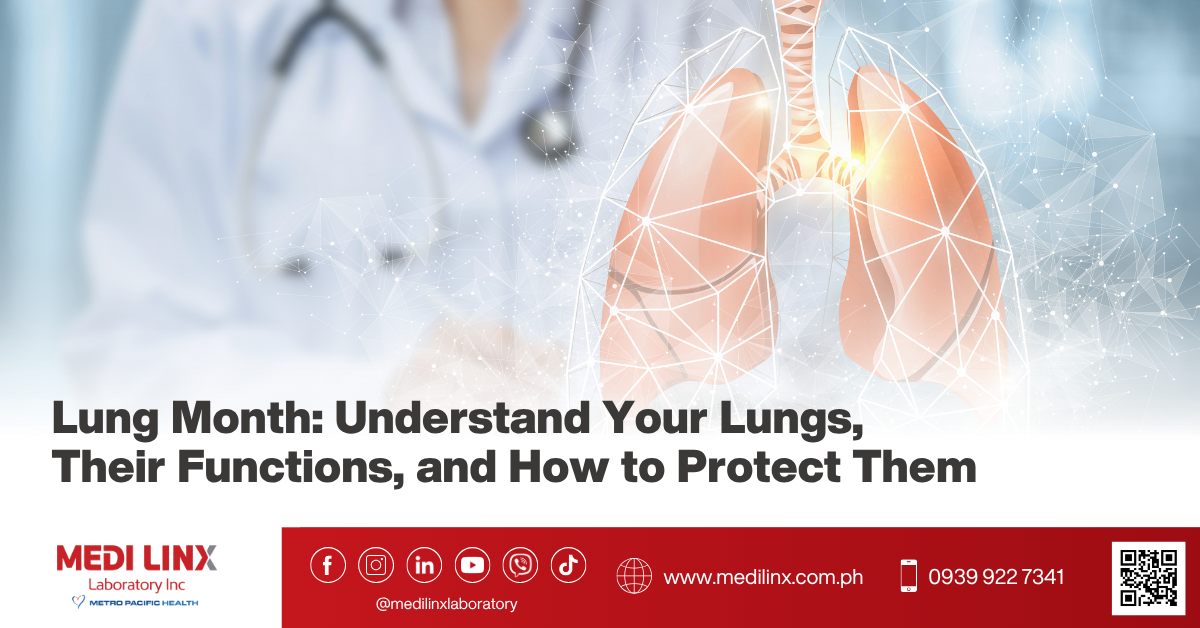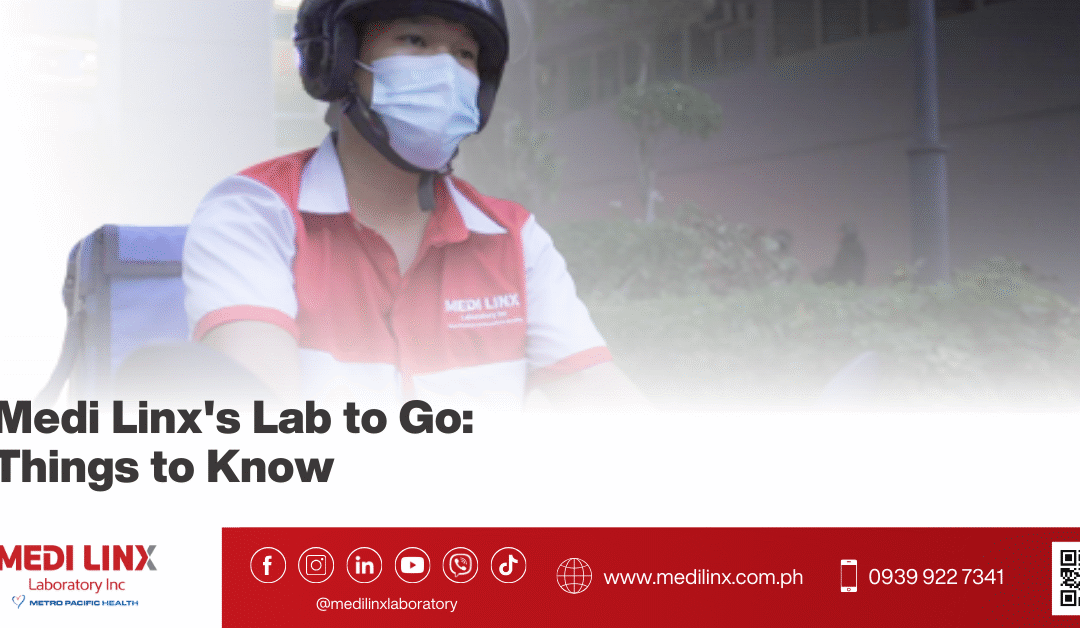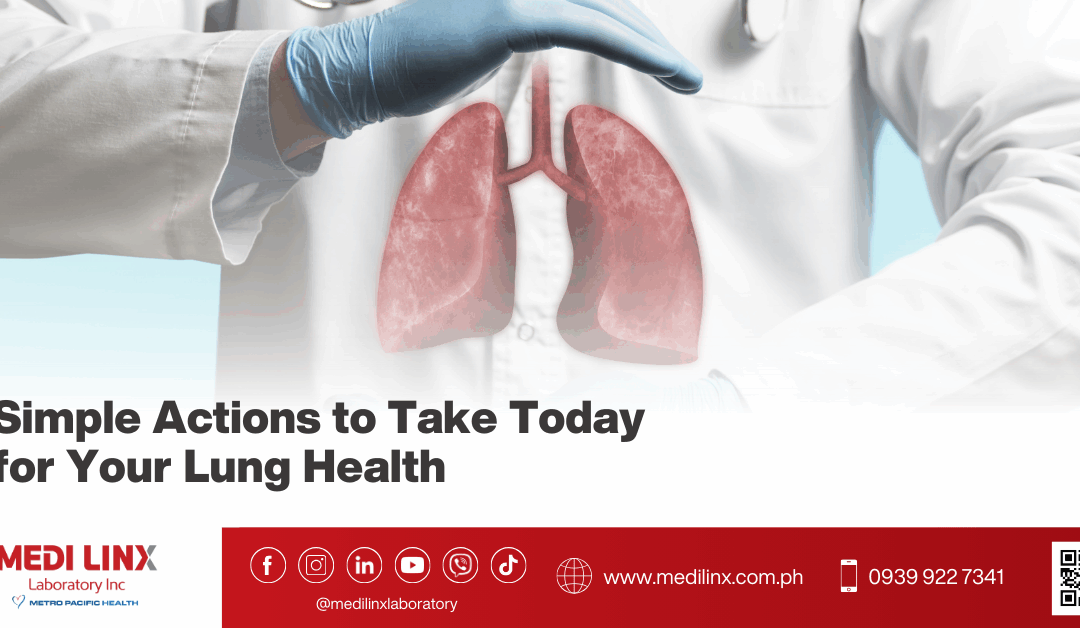August is Lung Month—a crucial time to turn our attention to the vital organs that are responsible for every breath we take. This month is an important reminder for us to widen our knowledge about the lungs, appreciate their complex functions, and take proactive steps to keep them healthy.
Here’s everything you need to know to honor Lung Month. Promote awareness and foster better respiratory health from here on out!
Understanding Your Lungs
The lungs are two spongy, pinkish-gray organs in the chest, one placed on each side of the heart. They are vital parts of the respiratory system, the network that allows you to breathe. The rib cage protects the lungs as they expand and contract with each breath you take. Think of them like two balloons that fill with air—although the lungs are much more complex of course.
How Do Your Lungs Work?
Your lungs do an amazing job at keeping you alive. Their main job is to bring fresh air, specifically oxygen, into your body and remove waste gas, also known as carbon dioxide. This process is called breathing or respiration.
When you breathe in, there’s a special muscle under your lungs called the diaphragm. It tightens and moves down, making more space in your chest for air to rush into your lungs, through your nose or mouth, down your windpipe, and into tiny branching tubes.
Different Ways You Can Protect Your Lungs
Protecting your lungs is key to a healthy respiratory system, and a healthy life in general. And sometimes, we overlook the tiny simple things we can do to keep them in good shape. Making smart choices can significantly help reduce your risk of lung problems and allow you to breathe easier for years to come.
- Don’t smoke or vape: This is the most important step. Smoking and vaping introduce harmful chemicals that damage tissues in your lungs over time. It increases the risk of many lung diseases, including lung cancer. Avoiding secondhand smoke is also very important.
- Breathe clean air: Try to limit your exposure to air pollution. Check air quality reports in your area, wear a mask if there’s any presence of smog (smoke and fog). Keep good ventilation in your home at all times, and avoid indoor pollutants like dust, mold, strong cleaning products, and smoke from fireplaces or candles.
- Exercise regularly: Physical activity makes your lungs and heart stronger. Engaging in regular exercises makes your lungs work harder, which means they become more efficient at taking in oxygen and getting rid of carbon dioxide. Start small with brisk walks, then transition to jogging or running when you can.
- Prevent infection: Always wash your hands with soap and water. Avoid close contact with people who are sick and stay up-to-date on vaccines like fly and pneumonia vaccines. This can protect your lungs from serious infections.
- Get regular check-ups: Visit your doctor for routine check-ups. Don’t wait until you’re feeling something before getting yourself checked. Catching potential problems early is better, and often leads to better outcomes.
Get Checked With An Acid Fast Bacilli Concentration (AFB CON) Test
Ensure your lungs are always healthy. If you have symptoms like persistent cough, fever, or unexplained weight loss, get yourself checked with an Acid Fast Bacilli Concentration (AFB CON) test. The AFB CON test looks for a specific type of bacteria, called the acid-fast bacilli, in your mucus. This test helps diagnose conditions like tuberculosis, and early detection is vital for immediate treatment. Not only are you protecting yourself, but it also prevents the virus from getting worse and spreading to others.
FAQs
What are some common signs of lung problems?
Common signs include persistent cough, shortness of breath, wheezing, chest pain, or coughing up mucus or blood.
Can exercise really improve my lung health?
Yes, of course! Regular exercise helps strengthen both the heart and lungs, making them more efficient at delivering oxygen throughout your body.
What does “secondhand smoke” mean and why is it dangerous?
Secondhand smoke is the smoke exhaled by a smoker or smoke from the burning end of a cigarette, cigar, or pipe. It’s dangerous because it contains a lot of the same harmful chemicals found in inhaled smoke and can cause lung diseases even in non-smokers.
Prevent Lung Diseases With An AFB CON Test at Medi Linx
Keep your lungs healthy at all times! This Lung Month, take a crucial step towards better lung health and protecting your respiratory health. With fast and reliable results, your AFB CON test from Medi Linx Laboratory will give you utter peace of mind. Contact us today to schedule your test!




